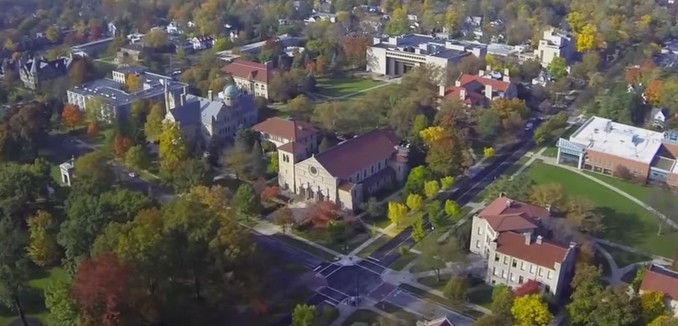Oberlin College’s failure to address the concerns of Jewish students who face a “persistent hostile campus atmosphere” threatens to “compromise its legacy of academic rigor and social justice,” Melissa Landa, president of the Oberlin chapter of Alums for Campus Fairness, wrote in the Oberlin Review on Friday. Concern over reports of anti-Semitic incidents on campus came to the fore after The Tower reported in February on a number of Facebook posts by Joy Karega, a professor at the college, which were deemed by many to be hostile towards Jews and Israel.
After praising the unequivocal condemnation of Karega’s posts by Clyde McGregor, chairman of Oberlin’s board of trustees, as well as an op-ed by Oberlin Professor Abraham Socher, which placed the posts in a historical context, Landa cited her experience on an Oberlin alumni Facebook group. According to Landa, some of the group’s participants denied that Karega’s posts were anti-Semitic, while others agreed that her posts were anti-Semitic but offered alternate reasons for explaining why Jews or Zionists offended them, and some defended the professor’s theories.
Landa continued:
With great concern, I regard such hostile responses as symptomatic of a culture that denies that anti-Semitism is a legitimate problem or a true form of bigotry. I see evidence of this culture when other alumni leaders claim that they “are unaware of hateful actions on campus,” ignoring the documented incidents that have been reported by alumni and in the press. I see evidence of this culture when faculty and administrators tolerate the promulgation of hateful falsehoods with no academic grounding in accordance with “academic freedom,” and I see further evidence of this culture when a faculty member defends Professor Karega while acknowledging that he has not read the posts in question.
Landa added that it was troubling that Oberlin’s administration had been aware of the posts for months yet took no action. She expressed further concern over the “persistent hostile campus atmosphere that Jewish students reported several months ago, which emanates from the prevalent, unbalanced and unchallenged anti-Israel sentiment being taught in many classes.”
Landa concluded by calling on Oberlin to recognize that anti-Semitism is pervading its “moral and intellectual fiber,” and on the administration to take the necessary steps to acknowledge and repair the damage done to “its legacy of academic rigor and social justice.”
Marc Blecher, a professor of political science at Oberlin, wrote last month that the school had begun to deal with the “unprecedented situation” caused by Karega’s posts.
Lawrence Summers, former Harvard president and treasury secretary, observed in The Washington Post last week that “with very few exceptions, university leaders who are so quick to stand up against microagressions against other groups remain silent in the face of anti-Semitism.”
The AMCHA Initiative published a study last month showing that anti-Israel activity on American university campuses, especially boycott activism, “correlated strongly” with anti-Semitic incidents.
[Photo: Oberlin College / YouTube ]




